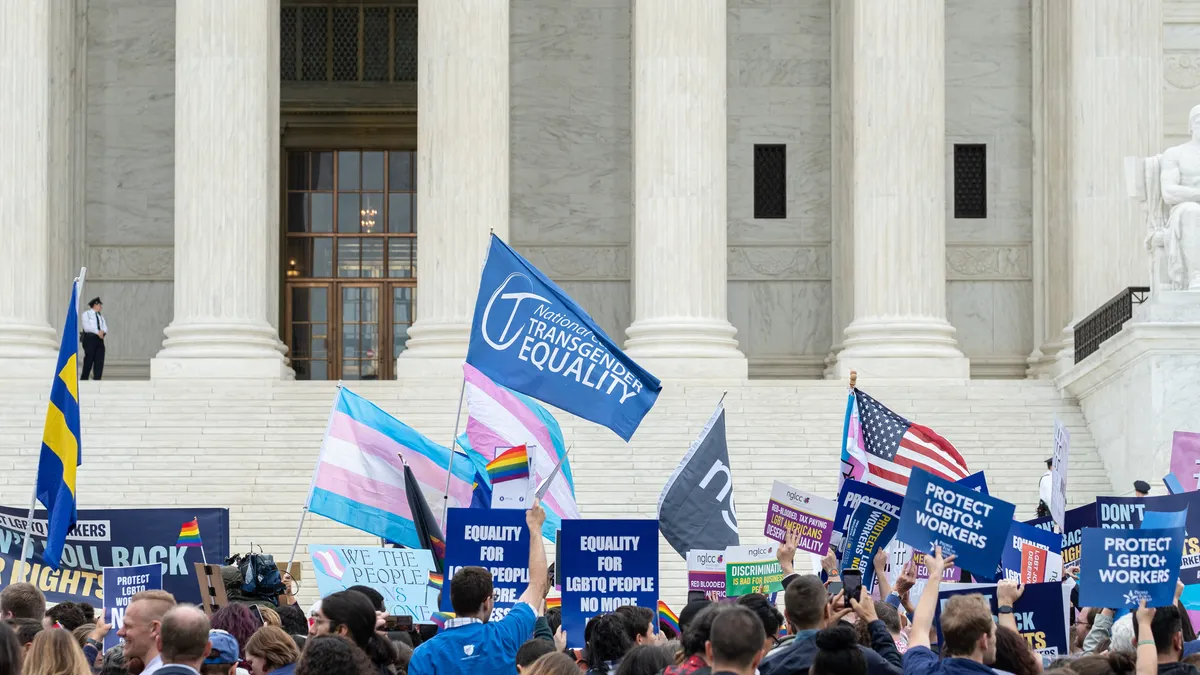Dive Brief:
- A Texas district court judge on Thursday vacated portions of the U.S. Equal Employment Opportunity Commission’s 2024 harassment guidance (State of Texas, et. al. v. EEOC).
- EEOC exceeded its authority by issuing guidance “requiring bathroom, dress, and pronoun accommodations inconsistent with the text, history and tradition of Title VII and recent Supreme Court precedent,” Judge Matthew Kacsmaryk found.
- The decision applies nationwide, Tiffany Stacy, San Antonio shareholder at Ogletree Deakins, confirmed to HR Dive.
Dive Insight:
Kacsmaryk took a precise approach, striking down specific provisions of the guidance — those dealing with gender identity — rather than the full document.
The elements he found illegal and vacated included any language defining “sex” in Title VII to include “sexual orientation” or “gender identity”; the entire “sexual orientation and gender identity” section under the bases covered by Title VII; example 46 in the section describing the context of an objectively hostile work environment, which focuses on misgendering; and all language defining “sexual orientation” and “gender identity” as a protected class.
Kacsmaryk ruled that EEOC expanded the scope of “sex” under Title VII beyond the binary categorization of biological male and female, relying on the U.S. Supreme Court’s 2020 Bostock v. Clayton County, Ga. decision. “But the Supreme Court expressly declined all invitations to newly define Title VII ‘sex,’” he wrote, with SCOTUS declaring homosexuality and transgender status to be “distinct concepts” from sex.
“I would be surprised to see any sort of appeal” of the decision, Stacy told HR Dive, noting that in addition to Acting Chair Andrea Lucas’ stated disagreement with the gender identity-related elements of the harassment guidance, the agency declined to appeal a 2021 decision in the same Texas court that struck down a technical assistance document with many of the same specific interpretations of Title VII.
Employers should note the precise approach to the guidance, Stacy cautioned, and avoid throwing out the document, which was the first update to EEOC’s harassment guidance since 1999 and includes valuable examples dealing with hybrid work, pregnancy and more.
Additionally, “while this decision has nationwide effect under federal law, employers need to be mindful of operating in states where state law provides those protections” for cases of sexual orientation and gender identity discrimination, Stacy said.
With Lucas’ new priorities, Stacy said employers may see lawsuits from the agency that meet at the intersection of religious rights under Title VII and workers’ sexual orientation or gender identity.
Nevertheless, employers can write anti-bullying and anti-harassment policies in a manner “that is a lot broader than what the law requires,” and HR should remain careful to explore ways all people can be respected and comfortable in the workplace, she said.
















